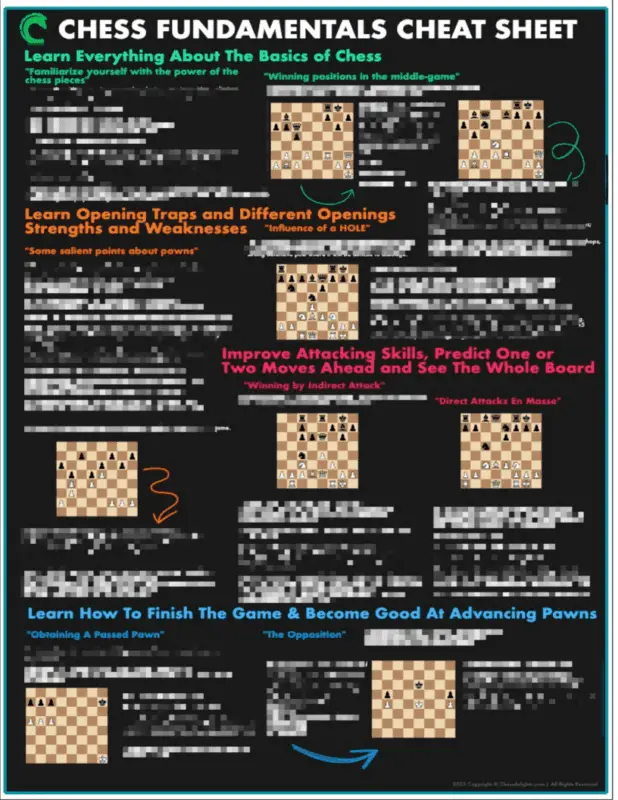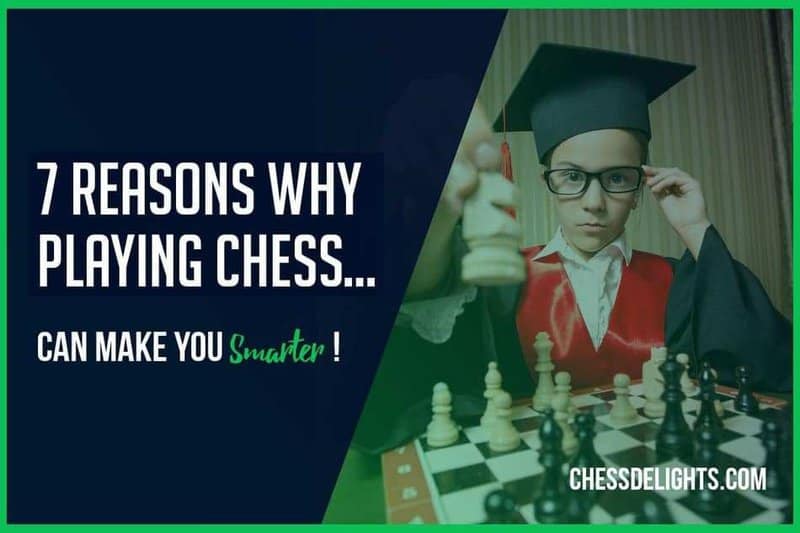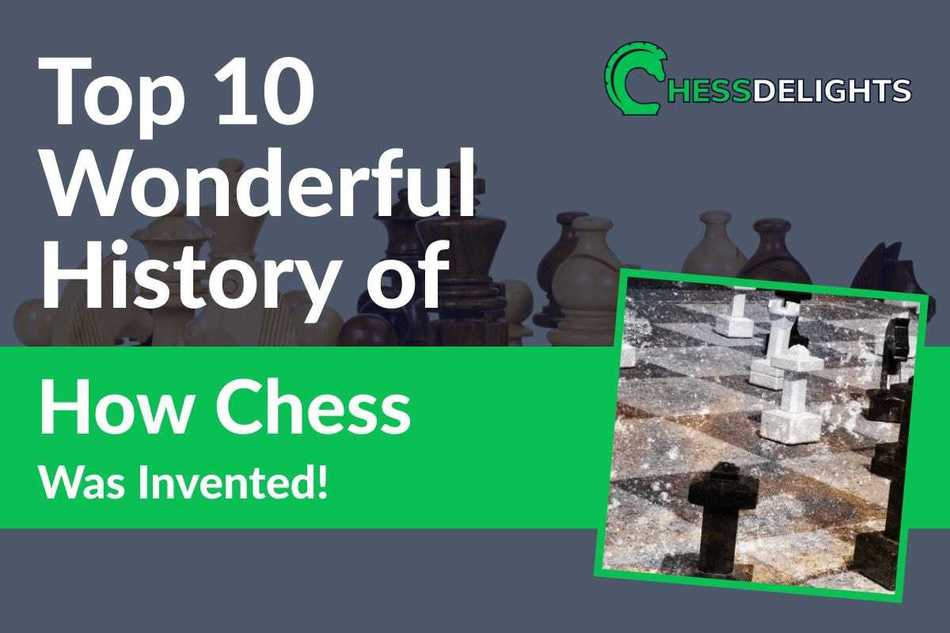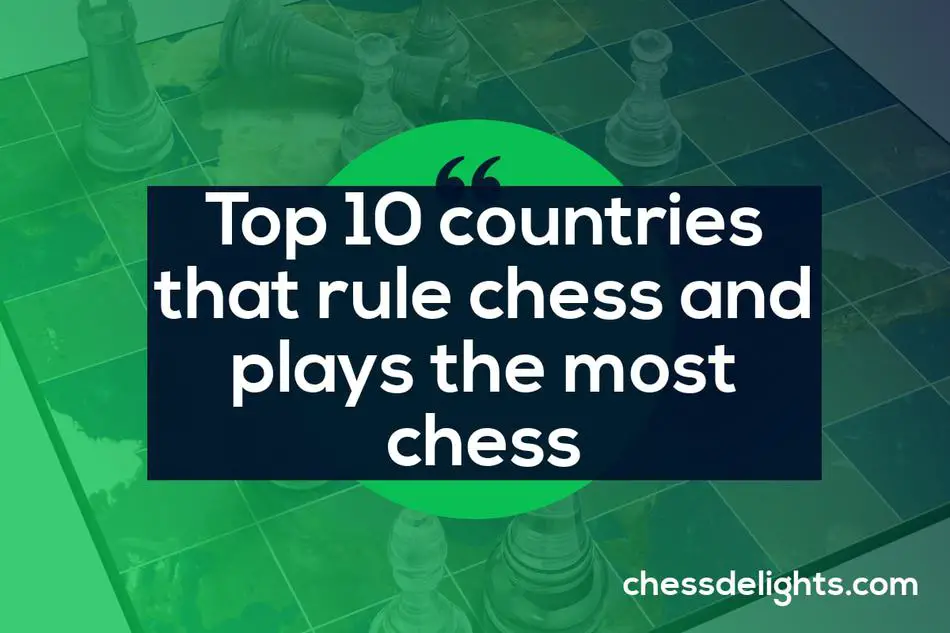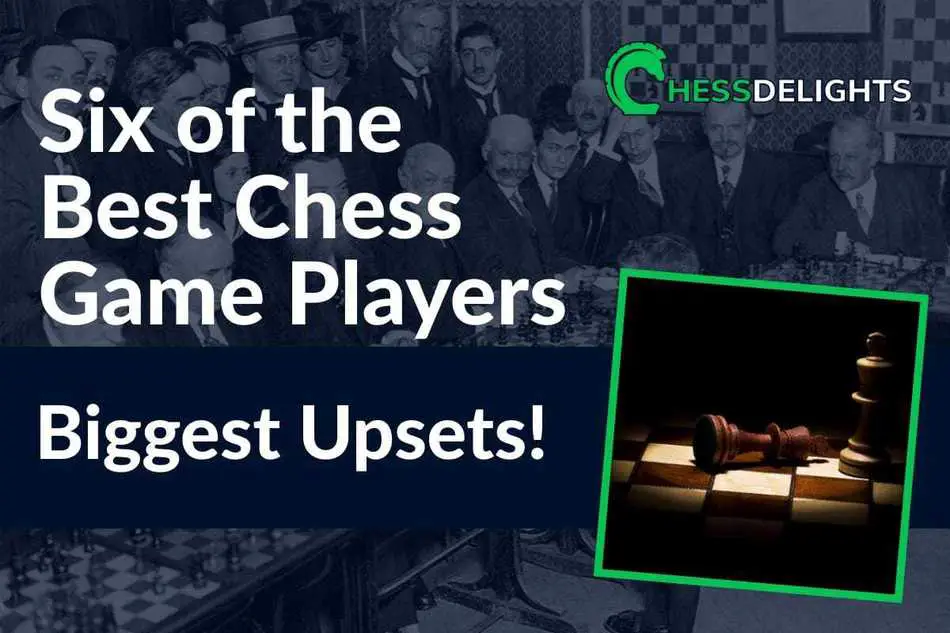How smart do you think chess players are?
Or have you ever asked if playing chess makes you smart? Which often is what people think when they see chess players…
Well, this article is going to give you hopefully complete and concrete answers to these questions…
At least you will find seven reasons why chess players are considered smart.
People equate chess IQ, smartness and intelligence in almost the same way.
In the same vein, whenever you mention that you are a chess player, the popular notion is that you are quick-witted and are capable of being analytical.
You are immediately thought to be better than the average Joe.
Some people would say that being a chess player means you are automatically good in mathematics and science as they are both subjects that require critical and analytical thinking skills.
Since playing chess requires you to be forward-thinking and tap into the area of the brain that stimulates more profound thought, you are, in a way smarter than the average person.
However, it is not a full-proof notion. Not all chess players are of the classically high intelligence mold; some are just good players who can handle certain situations with a better perspective.
Chess Smart: Why Chess Players Are Above Average?
In this age where we know there are several intelligences (and in a way, smartness, refer to Howard Gardner’s Theory of Multiple Intelligences), we can say that indeed chess players are smarter than other people in certain aspects.
They could be equal with them in other elements which put them at the same level overall.
We can perhaps say that in terms of analytical or strategic thinking, chess players are at a higher level than the average person.
Check out the book Frames of Mind: The Theory of Multiple Intelligences in Amazon here.
Correlation Between Chess and Intelligence
You may also be interested with this interesting article about “which is better knight or bishop“
Several high-level studies equate intelligence as a huge factor in determining whether a chess player would be successful or not.
While there are people, who postulate that relentless and untiring practice over some time would be enough to increase your skill in chess and other areas of endeavor, in-depth research with regards to playing our beloved boardgame would state that intelligence is a massive part of the equation.
A meta-analysis of several years of chess articles focused on those studies which mention intelligence quotient, objective chess skill, and overall cognitive skill state that intelligence plays a critical factor for chess players.
It is, however, more evident when it comes to players who are in the beginning levels as those who are playing in the higher levels of competition always are classified as bright.
Putting it in another perspective, those who are in the higher levels of competition can be described as geniuses in the field as they have given they're all towards improving their chess ability.
The ones who are at the beginning level are sure to be drawn to the sport not because they were forced but were inclined towards becoming more analytical, which is indicative of better intelligence, overall.
You may want to read article about: Six Of The Best Chess Game Players Biggest Upsets
Since in reality, there isn’t any surefire test to measure intelligence, we can only surmise that those who play chess are in some ways better than those who don’t play the game.
However, there are several tests (such as the Stanford-Binet test and other similar IQ tests) that measure intelligence quotient as the total of these aspects:
7 reasons why playing chess can make you smarter
1. Knowledge (reasoning and applying facts)
2. Fluid reasoning (problem-solving and patterns)
3. Quantitative reasoning (mathematics)
4. Visual-spatial processing (general patterns, seeing larger pictures) 5. Working memory (used for the short-term application of knowledge) 6. Nonverbal IQ (includes patterns and other problems without words) 7. Verbal IQ (comprehension, including vocabulary)
One can argue that of these seven presented aspects, all of these have something to do with playing chess.
1. We use our knowledge in reasoning out which pieces to move on a particular situation, and applying the strategies and moves that we have learned beforehand and eliminating the ones which do not fit the situation.
2. Our problem solving has to be present at all times as we have to be able to react according to all of the aspects that the game presents us. We have to recognize the patterns with which the other player is leading us and respond appropriately.
3. Our quantitative reasoning also follows as we begin to strategize what we are supposed to do based on what we are looking at.
4. This also triggers our visual-spatial reasoning as we tend to see the bigger picture when we strategize our moves at least one or two moves in advance.
5. Our working memory also gets tapped as we tend to recognize the patterns and the moves that our opponent would most probably make given the placement of the prices on the board.
6 and 7. Finally, our nonverbal and verbal IQ components get tapped when they are accessed when we reason out with ourselves about which moves we can make as we strategize and look into the situations we are presented with.
Countless hours playing chess would surely hone these aspects of intelligence to a razor-sharp edge.
We become much more analytical and better in strategizing as we become more and more focused and engrossed in playing the game.
It also follows that our ability to make connections and make several moves would have a direct correlation with our ability to think correctly.
Read article about: Useful Chess Terms And Chess Moves You Need To Know
What does the brain do when we play chess?
When we play chess, we can see the board and basically, know how the pieces move and how they correlate to each other.
We are able to map out how to connect the moves to form an efficient attack and gain the objective which is to win either by checkmating the king or forcing the opponent to resign due to positional disadvantage or weak development.
As we have previously noted, based on modern thinking about the aspects that comprise intelligence that chess players can meet the norms quickly.
Using the various aspects of knowledge properly involves the integration of all such aspects in getting to play chess.
You may also be interested with this article about “cleaning silicone chessboard“
Chess, as the evidence shows, incorporates these aspects to create a whole and thus supports the idea that playing chess helps to hone the intelligence of its players.
We have postulated time and again that the more we use our abilities, the better they become and as we have seen based on the overwhelming evidence that chess does help to increase the reasoning and strategic analysis of its players.
It can, therefore, be argued that there is a direct correlation between playing chess and intelligence.
Since there is no direct correlation that can be made between playing chess and intelligence, we can only surmise as to the extent of the effect of our intelligence.
Some researches say that it can be as high as 0.5 or a 50% connection, which considering all the evidence that we have is indeed a very high number.
We also have to be able to realize that most of the improvements we can have can be attributed to during the beginning levels of chess playing.
Our ability to ascertain the moves and to create effective and efficient attacks based on a combination of pieces comprise the highest correlation we have to increase our chess skill and intelligence.
As we progress in the field of chess-playing, we can improve and maintain our skills accordingly.
You may also want to read an article about : Advanced Chess Strategies That Will Help Improve Your Game
So, what’s the verdict?
Based on the evidence that we have gathered, there might be a correlation, but since there isn’t any direct evidence that we can effectively quote, we can surmise that yes, chess players are smart.
Chess players are smart because they are inherently smart in the first place.
They are drawn to playing chess because it helps them to increase their analytical and problem-solving skills.
Playing chess gets them to that higher plane of thinking wherein they get to analyze various situations from various angles using different aspects of what we call intelligence.
We get to find alternatives to what is presented, and we can map out ways to keep everything moving despite the hurdles we encounter.
In a way, correlating chess playing and improvement of intelligence can be construed as a placebo effect.
When we enjoy something we do, we attribute our success to other factors that seem to be contributory to what we have achieved.
For most of us chess players, whenever we excel at mathematics or in science, we attribute it to our love for the board.
We cannot distinctively say that it is the primary reason, but we know that it has a hand in getting us to that level of success.
You might be interested in the chess resources we use and recommend
Wrapping Up
There you have it, and I do hope this article was able to help you find the answer to the question you are looking for about chess and intelligence.
Until we can have definitive research that shows that playing chess does increase our intelligence quotient by miles, we can only surmise that chess does play a factor in the improvement of our overall intelligence.
Until that day comes, we can always point out to anyone who asks that chess players are smarter than the average Joe because he gets to use a lot more of his intelligence components in everyday life.
The more we play chess, the more analytical we get, the more measured we are in getting things done.
We never rush things but do things methodically. We never rush to get things done. Such is the trademark of a person who is not only intelligent but moreover is smart as well.
Feel free to share this article to your friends or family who might want to learn about our topic about chess players being smarter… 🙂
